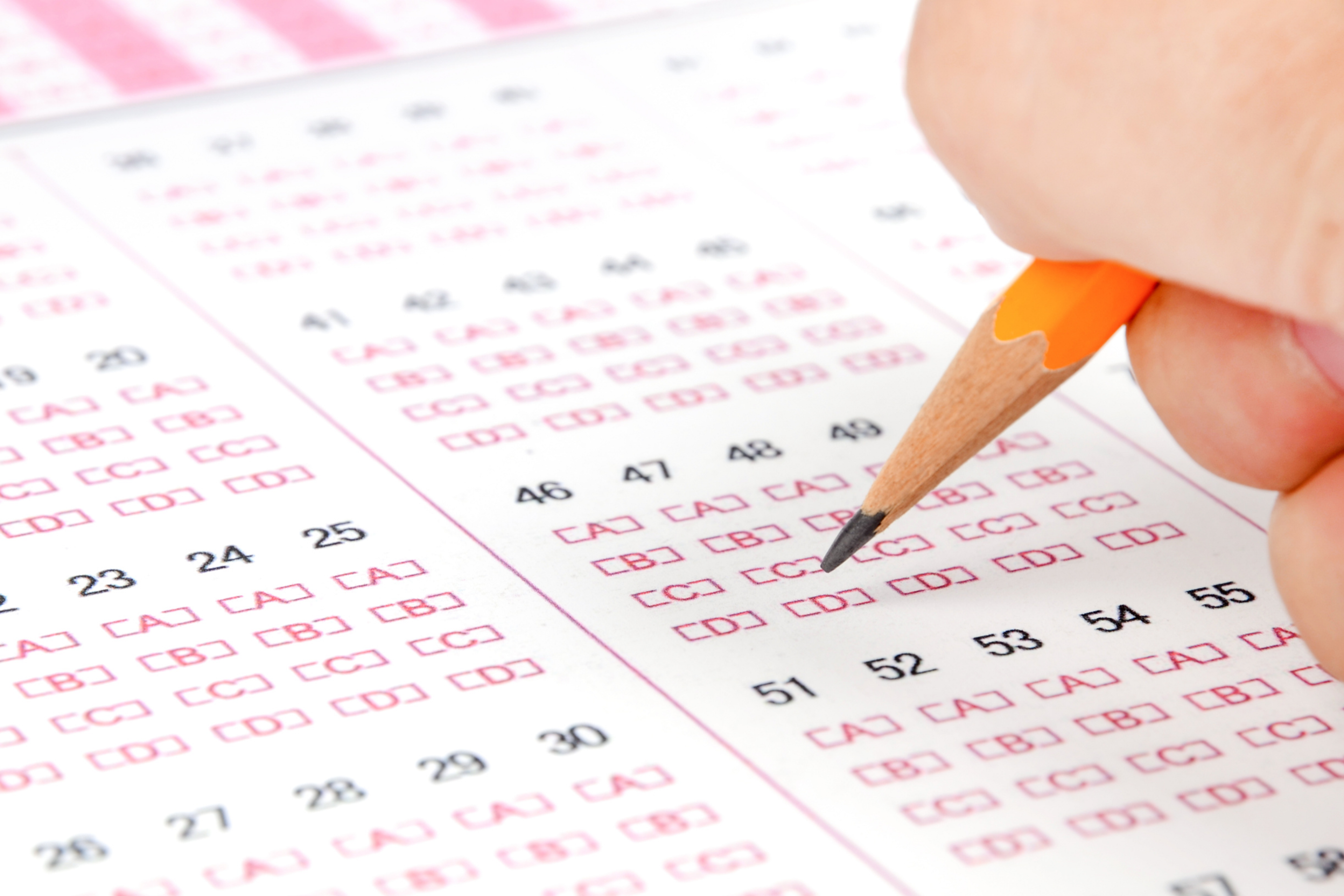
Table of Contents
The GMAT exam is a critical component for individuals seeking admission to business school, as it assesses the skills required for success in graduate management programs. The GMAT Focus Edition has introduced updates, refining the exam structure to better evaluate test-takers' abilities in quantitative reasoning, verbal reasoning, and data insights. Understanding the GMAT format, test sections, and scoring system is essential for those looking to achieve a competitive GMAT score.
This guide provides an in-depth look at each GMAT section, offering strategies to maximize performance and avoid common mistakes.
The Purpose of the GMAT Exam
The GMAT exam plays a vital role in the admissions process for MBA and other graduate business programs. It evaluates an applicant’s ability to interpret data, assess arguments, and solve complex problems, skills essential for business school success. Additionally, the GMAT score is often used by employers in fields such as consulting and finance to assess job candidates' problem-solving skills and critical thinking abilities.
With the introduction of the GMAT Focus Edition, business schools gain access to detailed performance insights, allowing them to make more informed admissions decisions. The test measures an applicant’s ability to work with graphical data, assess multi-source reasoning, and apply data literacy skills, all of which are critical in today's business environment.
Read: How to Study for GMAT: The GMAT Tutor's Guide
GMAT Focus Exam Structure and Duration
The GMAT format consists of four primary test sections:
- Analytical Writing Assessment (AWA)
- Integrated Reasoning Section
- Quantitative Reasoning Section
- Verbal Reasoning Section
The exam lasts approximately three and a half hours, including two optional breaks. The Quantitative and Verbal Sections are computer-adaptive, meaning that question difficulty adjusts based on the test taker's performance.
Each section assesses different in-demand skills, from mathematical problem-solving to reading comprehension questions and sentence correction. The GMAT Focus Edition also introduces an updated GMAT exam format, refining the test to better align with the evolving demands of business school curricula.
GMAT Exam Check-In and Test-Day Essentials
A smooth GMAT exam experience starts with proper preparation for check-in, test-day procedures, and an understanding exam policies. Whether taking the test at a test center or online, being familiar with the process can help avoid unnecessary stress.
Check-In Process
To ensure a hassle-free start, plan to arrive or log in at least 30 minutes before your scheduled GMAT exam appointment. Upon arrival, test-takers must present a valid, government-issued ID, which must:
- Match the details provided at registration.
- Display the full name in the Roman alphabet.
- Include the date of birth, a recent recognizable photograph, and a signature.
For test center appointments, bringing a confirmation email or letter is advisable. Test administrators may also take a photograph and, where permitted by law, conduct a palm vein scan to verify identity throughout the exam.
GMAT Testing Room Rules and Materials
Once checked in, test-takers will store personal belongings before entering the testing room. Only a valid ID, locker key, a light sweater, and prescription eyeglasses (without a case) are allowed. Prohibited items include:
- Electronic devices (cellphones, smartwatches, headphones).
- Study materials (books, notes, scratch paper).
- Aids and accessories are not pre-approved as comfort items.
Each test-taker receives a noteboard booklet and noteboard pen for calculations and notes. If the booklet fills up, the test administrator will replace it upon request. Leaving the workstation during a timed section is not allowed, except in emergencies, in which case test-takers must raise their hand for assistance.
Analytical Writing Assessment (AWA) Section
The Analytical Writing Assessment measures the ability to evaluate an argument and communicate ideas effectively in writing. Test-takers are required to critique the reasoning behind a given argument and support their position with logical analysis.
To succeed in this section, candidates should:
- Evaluate arguments methodically, focusing on logical flaws.
- Structure their response clearly, using well-developed paragraphs.
- Avoid unsupported claims and personal opinions.
Given the 30-minute time limit, time management is critical. Those who practice analyzing data and writing under timed conditions will improve their performance.
Integrated Reasoning Section
The Integrated Reasoning section assesses the ability to analyze information presented in multiple formats, including table analysis, graphics interpretation, and multi-source reasoning. This section requires test-takers to interpret quantitative reasoning verbal data efficiently, make sufficiency judgments, and answer two-part analysis questions.
Key question types include:
- Table analysis - Evaluating large datasets for trends and insights.
- Multi-source reasoning - Assessing and synthesizing information from various sources.
- Graphics interpretation - Understanding graphical data and drawing conclusions.
- Two-part analysis - Solving problems that require evaluating multiple conditions.
The GMAT data insights section focuses heavily on data analysis, testing the same reasoning and data insights skills valued in business settings.
Quantitative Reasoning Section
The quantitative reasoning section tests mathematical proficiency and logical reasoning. It consists of two primary question types:
Problem-solving - Requires mathematical calculations and logical reasoning.
Data sufficiency - Involves determining whether given statements provide enough information to answer a question.
Test-takers must master topics such as algebra, geometry, and arithmetic to succeed. The quantitative reasoning verbal component challenges test-takers to integrate logical reasoning with numerical analysis.
The GMAT quant section is computer-adaptive, meaning the difficulty of each question depends on previous responses. Success in this section requires efficient time management and familiarity with data-sufficiency question types.
Verbal Reasoning Section
The verbal reasoning section evaluates a test-taker's ability to read, comprehend, and analyze written material. It comprises three question types:
Reading comprehension - Tests the ability to interpret passages and answer related questions.
Critical reasoning - Assesses logical argument analysis and decision-making.
Sentence correction - Evaluates knowledge of English grammar and sentence structure.
To perform well on the GMAT verbal reasoning section, candidates should focus on:
- Identifying logical flaws in critical reasoning questions.
- Enhancing sentence correction accuracy.
- Practicing short passages and complex reading exercises.
Strong comprehension and argument evaluation skills are essential for excelling in this section.
Read: GMAT Verbal Guide: Reading Comprehension Questions and GMAT Verbal Guide: Critical Reasoning Questions
Strategies for Success on the GMAT Exam
Effective preparation is crucial for achieving a strong GMAT score. Candidates should:
- Develop a study schedule tailored to their strengths and weaknesses.
- Take multiple-question review tests to assess progress.
- Practice with on-screen calculators and learn to interpret graphical data.
- Use adaptive learning tools to familiarize themselves with the new GMAT structure.
Additionally, understanding the improved official score report and how schools interpret GMAT Focus results can provide valuable insights into target scores.
Read: The 10 Best GMAT Tutors
Key GMAT Question Types
Success on the GMAT exam requires a strong command of various question types across the quantitative and verbal reasoning sections. A deep understanding of these question formats and the right approach can significantly enhance performance.
Read:
Critical Reasoning Questions
In the GMAT verbal section, critical reasoning questions assess the ability to evaluate arguments, identify assumptions, and determine logical strengths and weaknesses. These questions require precise thinking rather than memorization. To excel:
- Focus on understanding the structure of an argument rather than getting lost in the details.
- Always identify the conclusion first, then determine the evidence supporting it.
- Watch out for common trap answers that distort the argument or introduce unrelated information.
Sentence Correction Questions
The sentence correction questions in the verbal section require a strong grasp of grammar, sentence clarity, and conciseness. Unlike casual writing, these questions demand a precise application of grammatical rules.
A common mistake is choosing an answer that “sounds right” rather than one that is grammatically correct. Instead, focus on core areas like subject-verb agreement, parallelism, and modifier placement. Efficient test-takers scan answer choices for obvious errors before making a selection.
Balancing Quantitative and Verbal Reasoning
Scoring well on the GMAT exam isn’t just about excelling in one section, it requires a balanced performance in quantitative and verbal reasoning. A strong overall score hinges on the ability to navigate both the quantitative and verbal sections effectively.
Test-takers who struggle with math should devote extra time to quantitative reasoning, ensuring they are comfortable with algebra, data analysis, and number properties. Conversely, those who find verbal challenging should focus on reading comprehension and grammar-intensive exercises to strengthen their verbal section performance.
Recognizing connections between logical thinking and numerical problem-solving can improve efficiency across sections of quantitative reasoning verbal.
Understanding Multi-Answer Questions: Up to Three Answers
Some GMAT question types, particularly in the Integrated Reasoning section, require selecting up to three answers. These questions assess the ability to analyze and synthesize information from multiple sources.
Unlike multiple-choice questions with a single correct response, multi-answer formats demand a methodical approach. Rushing can lead to misjudgments, so it’s crucial to read the instructions carefully and verify that all selected answers align with the given data.
How Business Schools Use GMAT Scores
A strong GMAT score can significantly impact an applicant’s chances of admission to a business school, but it is only one part of a holistic admissions process. Schools evaluate candidates based on multiple factors, ensuring that they select individuals who are well-rounded and capable of excelling in their programs.
Key Factors in Admissions Decisions
While the GMAT exam provides an objective measure of a candidate's analytical and reasoning abilities, admissions committees consider a range of other factors, including:
- Academic background and professional experience - Schools assess undergraduate GPA, coursework rigor, and career progression to determine whether a candidate is prepared for the demands of an MBA program.
- Leadership potential and extracurricular activities - Applicants with strong leadership experience, whether in the workplace, community service, or student organizations, stand out in the admissions process.
- GMAt score and overall exam performance - A high GMAT verbal and quant section score can strengthen an application, particularly in competitive programs where strong quantitative and verbal reasoning skills are highly valued.
- Personal essays and letters of recommendation - Strong essays and recommendations help admissions officers understand an applicant’s motivations, career goals, and character beyond their GMAT score.
How Schools Weigh GMAT Scores
While a GMAT score provides a standardized comparison among applicants, its importance varies by school and program. Top-tier MBA programs often have high GMAT averages, and a competitive score can serve as a differentiator. However, candidates with exceptional leadership experience, entrepreneurial achievements, or industry expertise can sometimes compensate for a lower GMAT score with strong professional credentials.
Schools also consider performance across quantitative and verbal sections, as well as subscores in critical reasoning, sentence correction, and data insights. For STEM-focused MBA programs, a higher quantitative reasoning section score may carry more weight, while programs with an emphasis on communication and strategy may prioritize verbal reasoning.
Read: GMAT Focus Score Chart (2025)
Additional Test-Day Considerations
To avoid last-minute surprises, review GMAT-specific policies before exam day. Helpful resources include:
- GMAT Exam Policies & Procedures – The official guide to all testing policies.
- GMAT Testing Rules Agreement – A breakdown of testing policies to prevent score cancellations.
- GMAT Test-Day Checklist – A quick reference guide for what to bring and expect.
- GMAT Exam Strategies & Best Practices – Expert tips for staying confident and focused.
Maximize Your GMAT Score with Expert Coaching Today!
While mastering the GMAT exam requires discipline and strategy, working with a top GMAT Test Prep Coach can make a significant difference. Personalized coaching helps test-takers develop targeted study plans based on strengths and weaknesses, master critical reasoning, sentence correction questions, and data insights, learn effective time management strategies for each GMAT section, and gain insights into quantitative and verbal reasoning techniques used by top scorers.
For those looking to achieve a high GMAT score and secure admission to a top business school, expert coaching provides the structure, accountability, and advanced strategies needed to excel.
Read next:
- Average GMAT Scores by Business School
- Can You Use a Calculator on the GRE/GMAT?
- Two Proven Techniques to Supercharge Your GMAT & GRE Study Sessions
- The 10 Best GMAT Tutors
FAQs
How often can I take the GMAT exam?
- You can take the GMAT up to five times within a rolling 12-month period, with a minimum interval of 16 days between attempts.
What is the cost of the GMAT exam?
- The GMAT exam fee is $275 in the United States, which includes sending your score report to five programs of your choice.
How long should I prepare for the GMAT exam?
- On average, successful test-takers spend about three months preparing for the GMAT, dedicating approximately 10 hours per week to study.
Can I reschedule my GMAT appointment?
- Yes, you can reschedule your GMAT exam. Rescheduling more than seven days before your appointment incurs a $50 fee; rescheduling within seven days of the exam costs $250.
What resources are available for GMAT preparation?
- The official GMAT website offers free downloadable test preparation software called GMATPrep, practice questions, and study guides for purchase.
Read: Top 50+ Free Resources for GMAT & GRE Practice
How is the GMAT exam scored?
- The GMAT provides a total score ranging from 205 to 805, combining performance from the Quantitative Reasoning, Verbal Reasoning, and Data Insights sections











